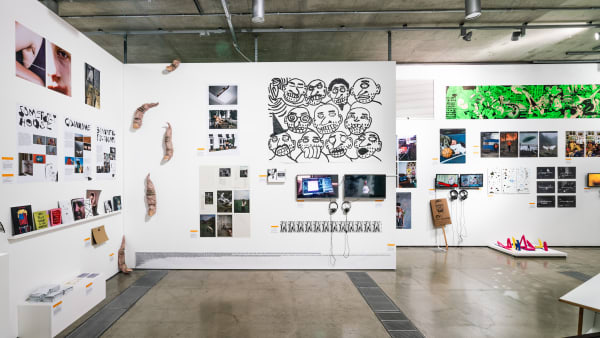We catch up with Foundation students before they move onto the next stage in their creative education. This year, we look at projects that focus on local life, developing the areas around our campuses in King's Cross and Archway.
-

Vincent Benson, Sponsored by Archway, Foundation Diploma in Art and Design
-

Vincent Benson, Sponsored by Archway, Foundation Diploma in Art and Design
-

Vincent Benson, Sponsored by Archway, Foundation Diploma in Art and Design
Vincent Benson, Graphic Communication Design
Sponsored by Archway shines a light on small businesses, encouraging people to shop within the community. It is an ironic take on the over-commercialisation of football, replacing the sponsors of football shirts with the logos of local businesses around the foundation campus in Archway. The project contains a football shirt, scarf, hat and airhorn plastered with this all-over print. The objects are accompanied by a newspaper and website (archway.football) connects the community with their local shop owners, encouraging people to shop local.
Vincent's project celebrates the local area of the Archway campus where Foundation students are based: "The connection between Archway and the Foundation course should be vocalised compared to being at King's Cross. Everyone has their routines of where they get lunch, who they talk to in those shops and what they order: that's a major part of the foundation experience."
The project demonstrates the opportunity for football clubs to connect to their local area. "Since the attempt of 'The Super League', fans have lost trust in the ownership of clubs who seem so distant to the reality of supporting a team," explains Vincent, "by connecting with the community, teams can show they care about the local area instead of just maximising their profits."
-
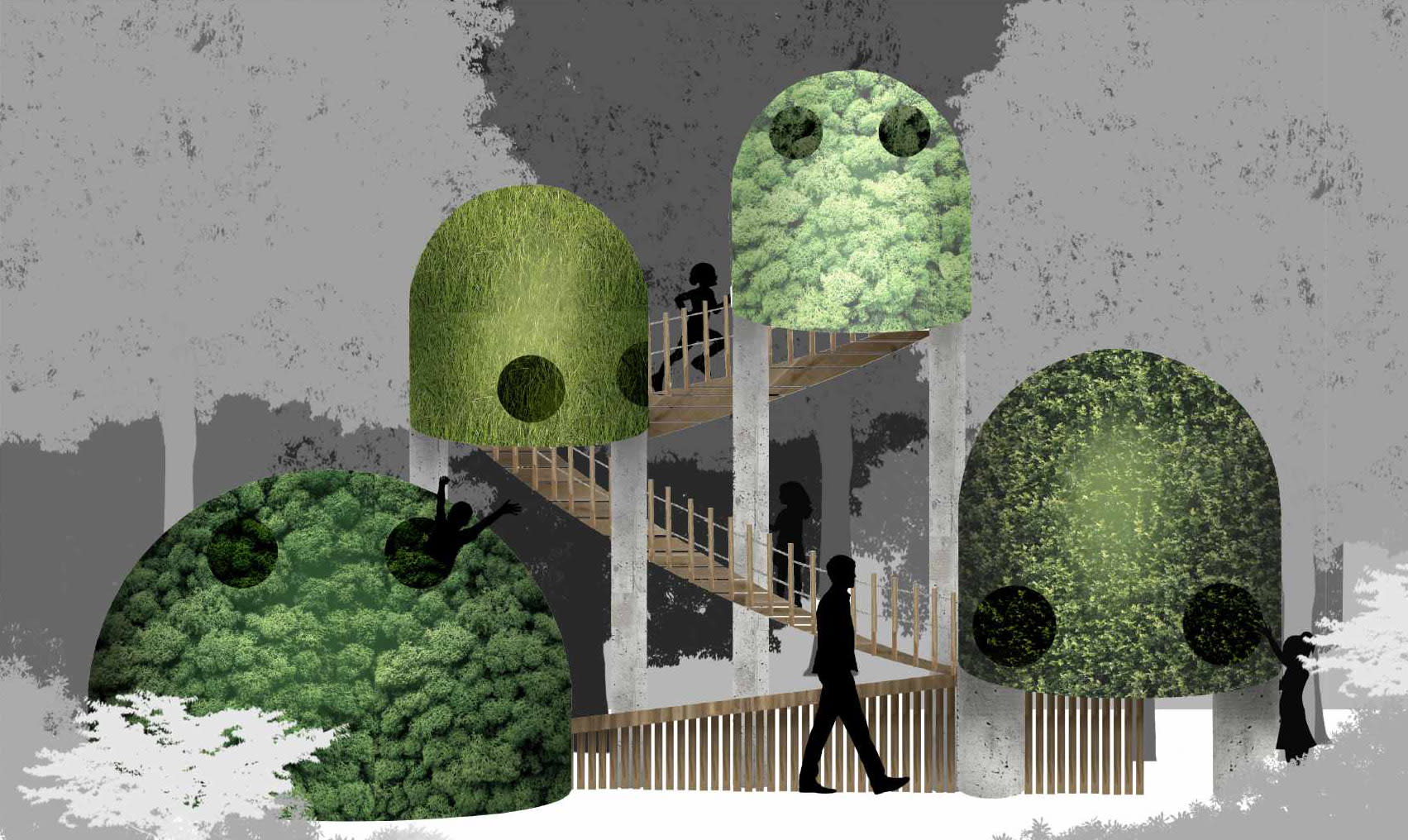
Sloane Jesse, Denizens, Foundation Diploma in Art and Design
-
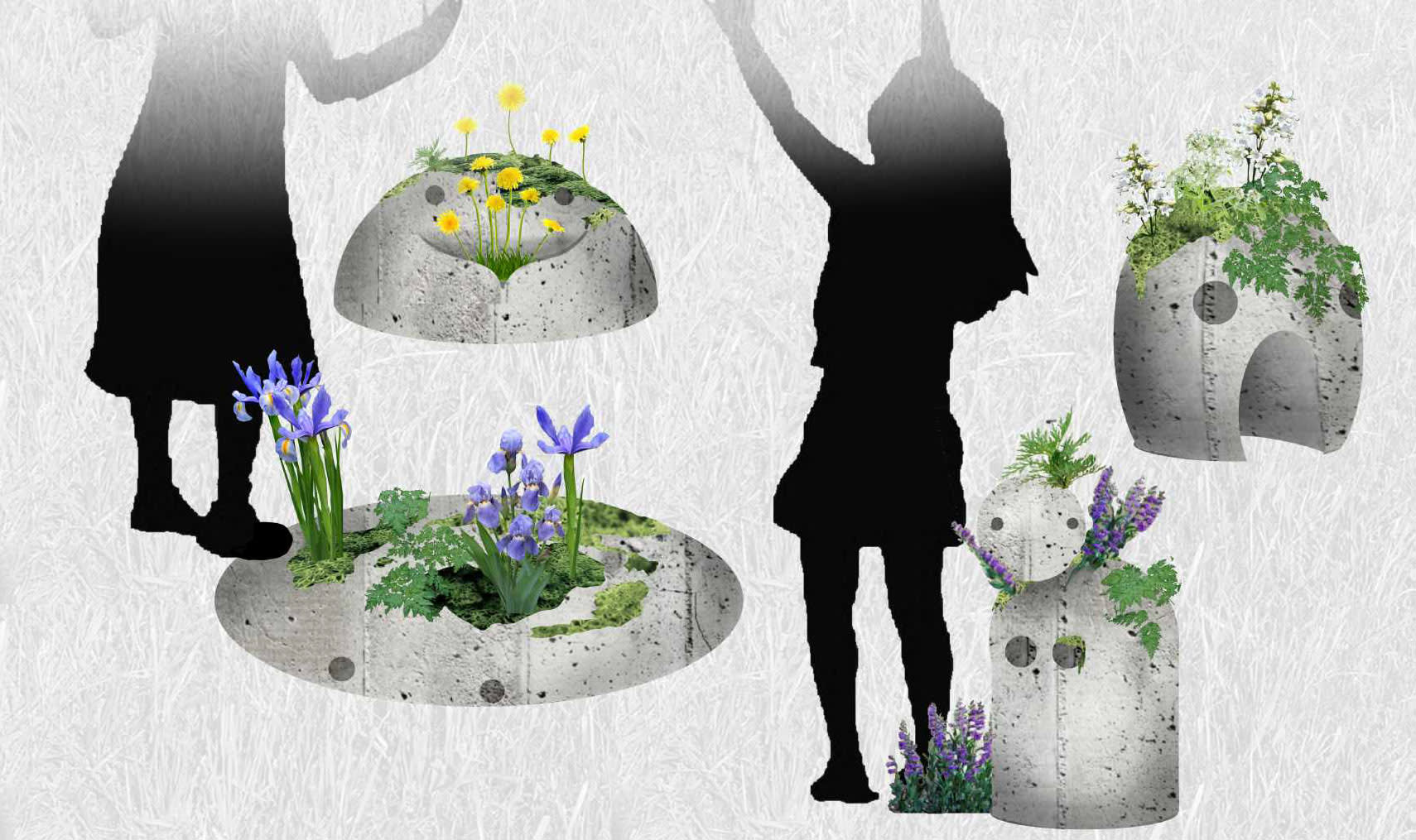
Sloane Jesse, Denizens, Foundation Diploma in Art and Design
Sloane Jesse, 3-Dimensional Design and Architecture
Denizens is a series of play spaces proposed for Camley Nature Reserve which sits on the canal side at King's Cross by Central Saint Martins' main campus. Sloane designed with the phrase “structure as entity” in mind; these spaces are their own beings, creating a new bond between user and structure.
Sloane focused on Camley Nature Reserve because it's a local natural environment: "I lived in rural Vancouver Island for four years and when I’m not in London I’m on Bainbridge Island, off the coast of Seattle. They’re both heavily forested areas and spending time there has taught me to value nature above built space." Camley was a particular challenge to design for because it's a small space, giving design restrictions to whatever structures might be proposed.
Sloane's project asks us to be in this natural environment enveloped by urban development. "At the outset, I was designing them them for the King's Cross community as a whole... The King’s Cross area has changed a lot over the years, and even though it’s been reworked over and over I still don’t think it’s reached its potential. Spaces like Denizens are new and exciting to look at, but they also beg to be used by the community. They’re useless without the people’s interaction. King's Cross needs more of that!
-
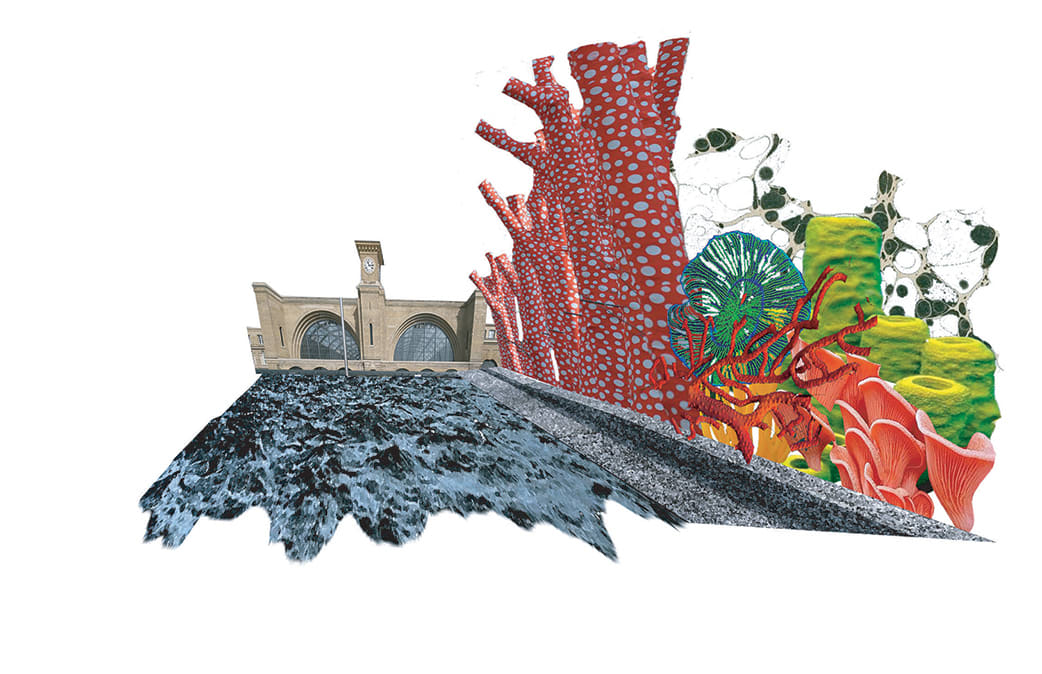
Hedvig Skarstedt, Foundation Diploma in Art and Design
-
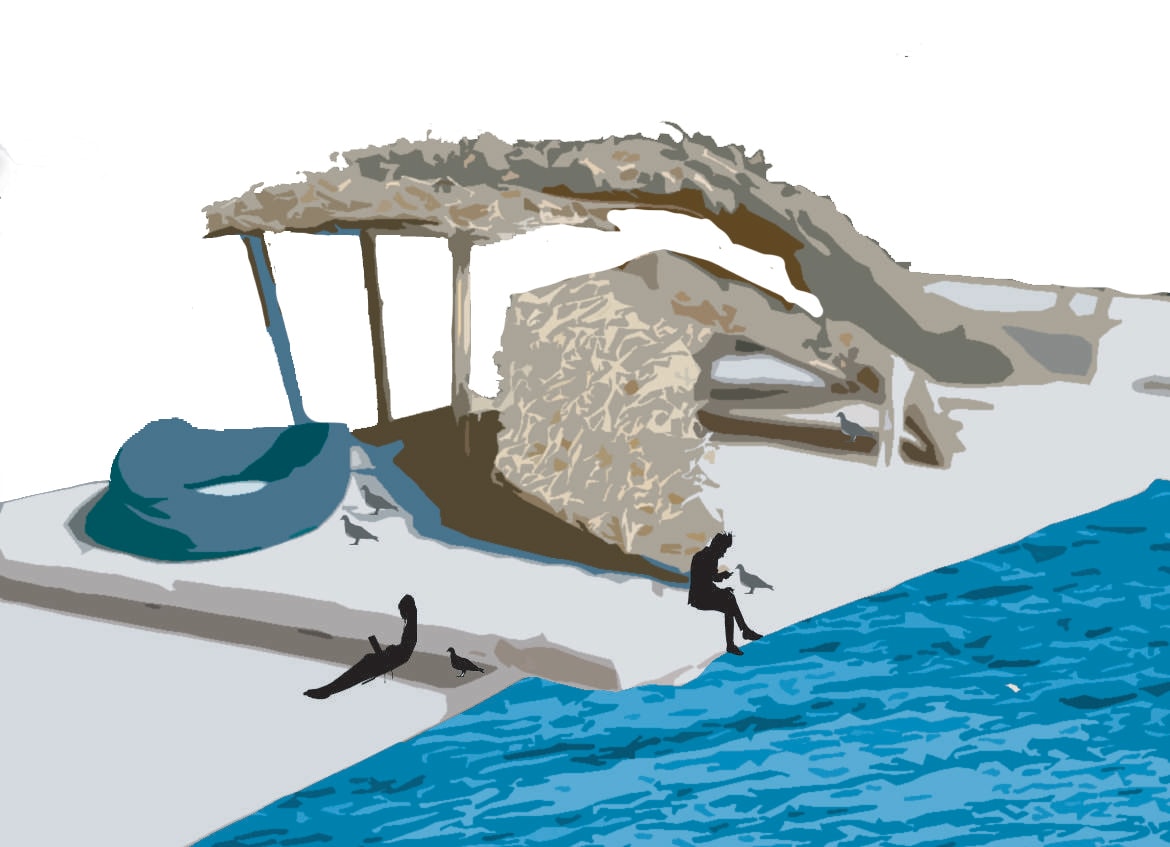
Hedvig Skarstedt, Foundation Diploma in Art and Design
Hedvig Skarstedt, 3-Dimensional Design and Architecture
A Bird's Nest imagines a new pathway for architecture by inviting multi-species co-existence between pigeons and micro-organisms. The proposed structure sits across the steps and canal at the front of Central Saint Martins' Granary Building in King's Cross. "While most architecture and design concern themselves with the needs of humans alone," saus Hedvig, "I want to embrace nature-centric design, taking responsibility for the impact that structures have on other living systems." The design combines algae, luffa fibre with carbon fibre offering place for micro-organisms, such as mycelium, to thrive.
Inspired by the developing understanding of the microbiome, this project rejects any sterility in favour of environments that are alive and probiotic.


